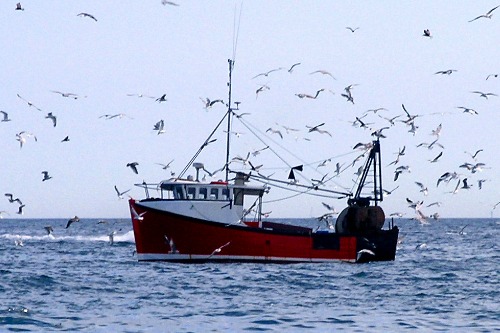How the insurance industry can help put an end to illegal fishing

Authored by Chip Cunliffe Sustainable Development Director at AXA XL
Illegal, unreported and unregulated (IUU) fishing is a major global problem that results in financial losses running into billions, causes huge damage to natural habitats and threatens the sustainability of ocean fish stocks and biodiversity. Chip Cunliffe, Biodiversity Director at AXA XL, discusses the role the insurance industry can play in cracking down on this harmful practice.
It’s estimated that one in five of the fish caught globally is caught illegally. Not only does this illegal activity cost the global economy more than US$20 billion every year, it increases ocean risk by damaging the sustainability of ocean biodiversity. It also threatens fragile natural habitats and the welfare and livelihoods of the, often vulnerable, communities that depend on them. In short, illegal, unreported and unregulated fishing is a huge problem – for us all.
IUU fishing encompasses fishing without a licence or authorisation, not reporting or misreporting catches, fishing in prohibited areas, catching or selling prohibited species or fishing in areas that are not covered by a regulatory framework.
IUU fishing has a clear effect on the sustainability of ocean fish stocks, accounting for some 20% of the global catch. It also has an effect on the ecosystems in which those fish exist, with over-fishing causing imbalances that threaten the viability of other forms of ocean life. Illegal fishing is a contributor to litter in the ocean and the problem of “ghost gear”, whereby abandoned, lost or otherwise discarded fishing gear (ALDFG) results in the unintentional death of other marine life. About 640,000 tonnes of ALDFG are dumped into the ocean every year, killing an estimated 136,000 sea animals.
While global economic losses from IUU are thought to be in the region of US$23 billion per year, there are knock-on economic effects too. Fishing makes up a large proportion of the world’s economy, with about 12% of the global population relying on fisheries for their livelihood. Many of these fishers live in developing economies and many are migrant workers. IUU fishing has been linked to problems such as human trafficking and labour and human rights abuses, as vulnerable fishers are exploited by illegal operations seeking to make a profit.
What role can insurance play in stopping this trade?
IUU fishing is clearly a big problem and one which governments and other stakeholders are keen to detect and prevent. And the insurance industry has a role to play here.
By refusing to insure vessels that are engaged in IUU fishing, underwriters can help to reduce the financial incentives for illegal fishing. This’s why, in 2017, AXA signed the Oceana and United Nations Environment Programme Finance Initiative (UNEP FI) Insurance Industry Statement Against IUU Fishing which, among other things, outlines best practices about which vessels to insure. And while this may sound easier said than done, measures have been put in place to help ensure that insurance companies are not unwittingly covering vessels engaged in IUU.
Over the past year, AXA XL has been working with project partners in the Ocean Risk and Resilience Action Alliance to help improve the way vessels are evaluated for insurance purposes and to make sure that criteria on IUU fishing is included in underwriting guidelines. As part of this, we’ve included additional checks in our Marine Underwriting Rules and Guidelines, such as requiring vessels to be checked against IUU fishing blacklists, assessing whether fishing vessels have all the correct licences and checking that they don’t have periods when their tracking systems are inactive. In addition, AXA XL now requires International Maritime Organization (IMO) numbers for all fishing vessels and refrigerated cargo vessels that we insure. IMO numbers are unique to every vessel and the number remains with the vessel over the course of its lifetime, regardless of any changes in flag or ownership. This gives greater transparency in vessel detection and location and the activities they’re engaged in.
As well as the environmental and sustainability concerns, there is a clear business rationale for avoiding underwriting clients engaged in IUU. Vessels taking part in IUU are, by their nature, more likely to engage in other risky behaviours that may result in increased or even fraudulent claims. And by insuring vessels that engage in IUU, insurers expose themselves to transgression of international, national and regional rules that target entities deemed to be supporting IUU fishing.
The health of our ocean is vital to the health of the planet. Millions of people depend on the ocean for their nourishment and livelihoods. And the sustainability of marine life and ecosystems is a huge concern for all of us.
As the famed UK broadcaster and naturalist Sir David Attenborough has said: “The ocean’s power of regeneration is remarkable – if we just offer it the chance.” If we, as an insurance industry, can play our part in cracking down on IUU fishing, that will be one way in which we can help to do just that.





